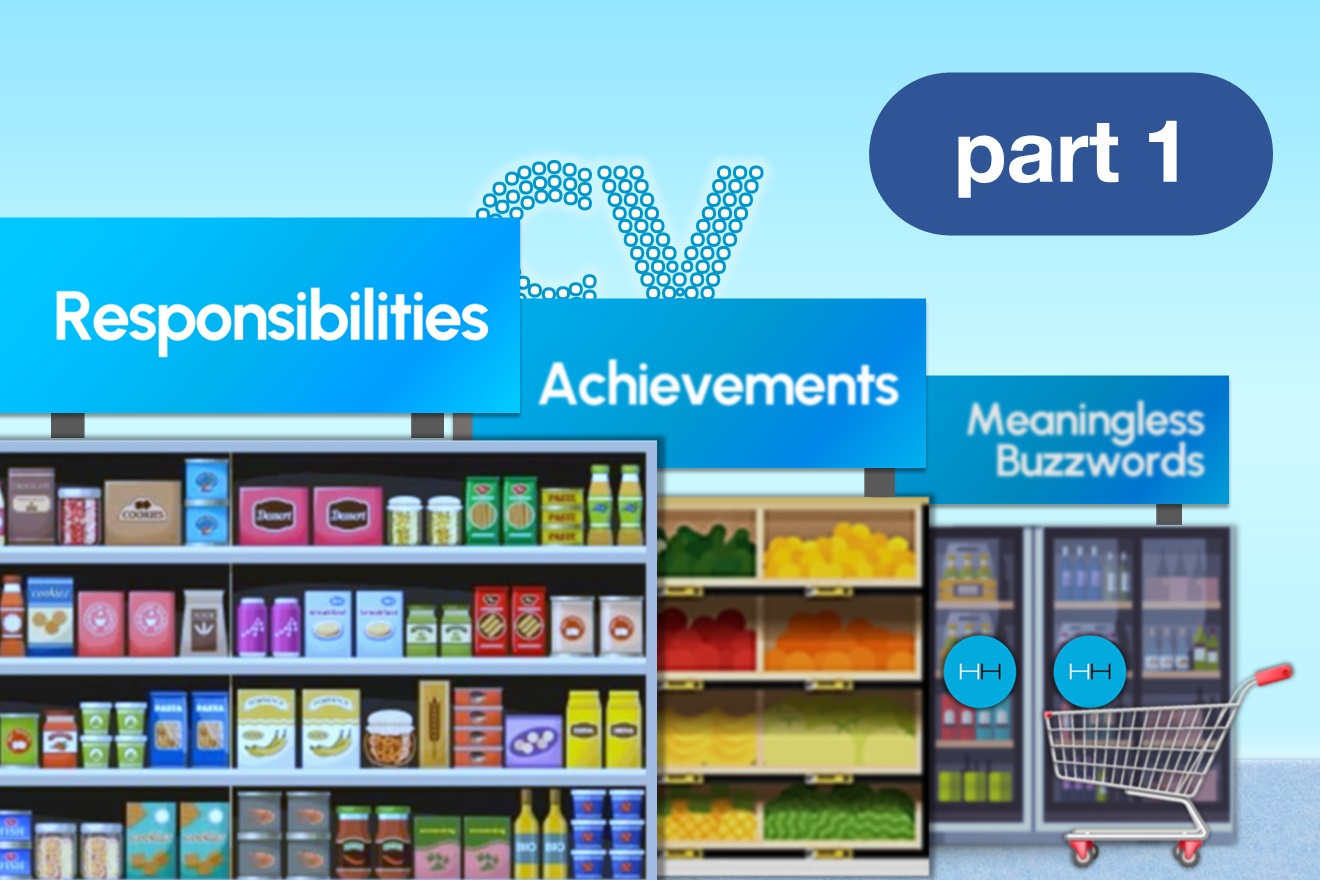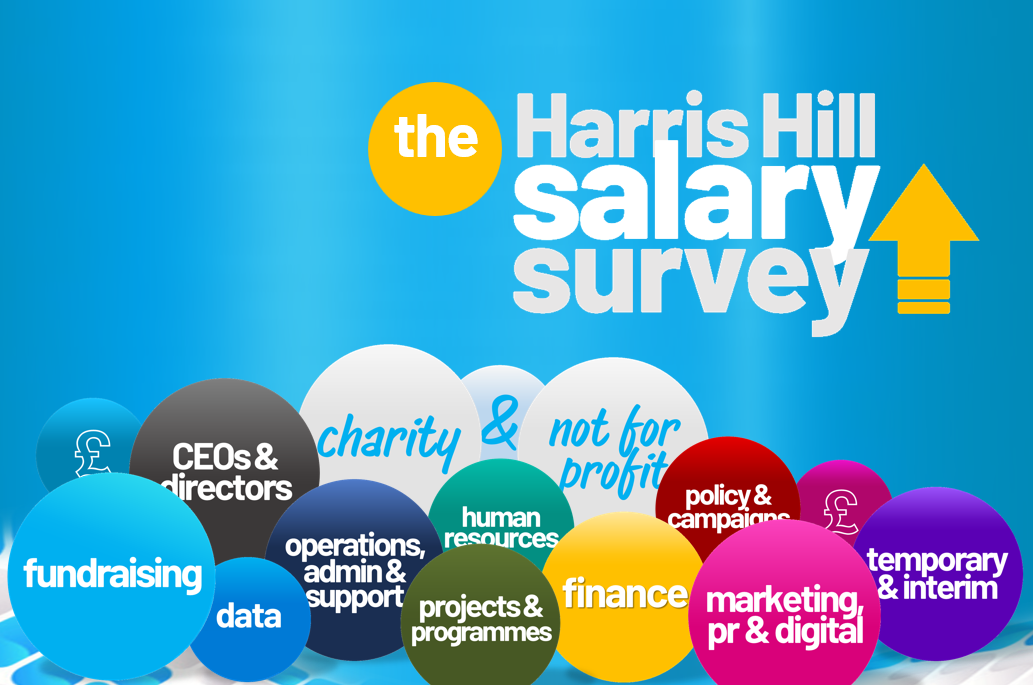If you're applying for a job in the charity sector, a supporting statement can be your biggest opportunity to sell yourself to a potential employer. We share some tips for making sure your skills truly shine.

One day, there'll be some brilliant bit of technology that scans your brain for all the qualities, skills and experience your prospective employer's been looking for, and delivers a whizzy presentation about them directly to their iPhone 27. It'll be great, if a little Orwellian.
Until then, most employers depend on application forms, the good old CV (so old we're still using the Latin name), and in most charity and not-for-profit organisations, the all-important supporting statement.
And it really is important, because it's your biggest opportunity to sell yourself to the hiring organisation.
Let's be honest though, it's nobody's idea of fun. If you've already spent hours perfecting your CV or slogging through an employer's 30-page online application (we won't name culprits, but you know who you are...) the last thing you're in the mood for is writing 500 words of chirpy copy about your listening skills.
So here's the first tip: resist the temptation to dash something off just to get it done. It might be the last thing you do but it's often the first thing an employer will read, and first impressions count. Unless you're right on deadline, come back to it when you're fresh and able to really think about your responses.
Speaking of deadlines, if you're applying through a recruiter it's well worth a chat with your consultant to make sure you're totally clear on timings and exactly what's required. The statement has to come from you personally, but there's no reason you can't ask your consultant for feedback, so don't wait until the deadline. Send it over sooner to give yourself time for a second draft if you need it.

So where should you start?
First and foremost, the supporting statement is your opportunity to explain why you want the job - your interest in and attraction to the organisation. Charities want to hear why you're keen to work there specifically, in support of that particular cause.
Whether that's down to your knowledge of the organisation from personal contact or experience, research you've done, enthusiasm for what they do, or a great match between their values and yours, make sure it comes across loud and clear. Nobody ever hired the candidate who didn't seem that bothered about getting the job.
Matching the person specification
Application processes across the third sector differ of course, but here's a typical example of what you may be asked:
'Using each of the competencies as a header, please describe how your skills, knowledge and experience meet the requirements of the role as set out in the person specification.'
So, you'll need to take each of the requirements listed in the person specification and describe how you meet them.
By far the best way to do this is to give actual examples from your experience. If you've ever cringed at an Apprentice contestant declaring themselves the best thing since Branson it's probably not (just) because they're a truly terrible human being, but because you've seen nothing to back up their claims. Examples are important.
Using real-life scenarios means you can show, not tell, the employer why you're ideal for the role. Don't just say 'I have strong time management skills' but instead, talk about a project you worked on, a process you implemented, or a system you use that demonstrates your ability to manage multiple tasks and meet deadlines. Focus on what you personally did and how your time management made it work.

OK, but there are 30 requirements, yet they want a maximum of two pages?
Sadly there's no getting around this one: writing a really good (but concise) supporting statement is never going to be a five minute job. But here are some tips to make it easier:
• Firstly a little recruitment not-so-secret: 95% of person specifications are 95% the same. You know the score: communication skills, attention to detail, ability to multitask, demonstrating initiative, working within a team. Whatever your career, it's likely you'll run into certain requirements again and again. Create a master copy that covers all of these effectively and your future applications are already halfway done. Just be sure to tailor your responses to the role you're applying for, updating examples as your career progresses.
• Speaking of which, even when you're not job-hunting, keep a record of projects that go well, however large or small. Trying to remember a specific instance that highlights your amazing negotiation skills can be tricky at a year's remove, so note it down while it's fresh in your mind.
• Consider grouping requirements together: if a project you worked on clearly demonstrates three different skills, don't write about it three times. Group the skills into a single heading and write about the project once, highlighting each of the qualities in question. Use your judgement though - cutting 30 criteria down to 15 answers may be a sensible way of keeping the length down, but cutting ten down to three might mean you're skimming over things in insufficient detail.
• There might be one or two requirements you don't yet meet (if there are too many it's probably not the right job). It can be tempting to ignore these and hope no-one notices, but you'll create a much more positive impression by acknowledging them and giving an example that shows the employer you can pick up new skills quickly.
• If you’re clear on what to say but struggling to say it succinctly, why not enlist the help of AI? Sure, it’ll probably malfunction and enslave humanity at some point, but in the meantime, tools like ChatGPT can do a decent job of turning your wordy ramblings into punchier points.
Spell it out
You've already sent your CV and/or filled in an application form: surely the employer just needs to read these to deduce that you have all the right qualities?
Possibly yes, but unless you're applying to be Dr Watson, the hiring manager's probably no detective. Don't make them hunt for clues and piece your story together: use the supporting statement to highlight all the factors in your favour and make them crystal clear.
Also remember that the person screening initial applications might not be the actual hiring manager (or potentially even a person), so try not to assume they'll understand the finer detail of your previous roles. If you want them to know you're the ideal candidate, tell them clearly and explain why in straightforward terms that anyone can understand.
Lastly of course, proofread, proofread and proofread again. That claim about 'accuracy and attention to detail' won't carry much weight if your relationship with spelling and grammar is going through a rocky patch that day. If in doubt, get someone else to read it too, as it's easy to miss things in a piece you've read many times.

So to summarise: use your supporting statement to make it abundantly clear to the reader that you're genuinely keen to work for their organisation, enthusiastic about the role, and that you can demonstrate (preferably with examples) all the skills and qualities they're looking for.
Which - at least until we get that brain-scanning technology - is your best route to getting the interview!
David Young, Director of Marketing, Harris Hill

For more advice on applications and supporting statements, contact any of our specialist consultants, call us on 020 7820 7300 or get in touch via info@harrishill.co.uk
More from the Harris Hill Blog
 | How to write your charity sector CVIt's your personal marketing tool and essential to your charity job search, but what makes a good CV and what do charities look for? Here's the advice from our specialists, in the first of a two-part guide... | |||
 | How to conquer your interview fears: top ten tacticsBrilliant, you've landed the interview! Except, now you've got to go to the interview. Yikes. For many of us they can be a daunting prospect, but worry no more: guest blogger Nicola Greenbrook is here with her top ten tactics for trouncing your trepidation... | |||
 | How to start a new job...and surviveYou've survived the interview process and triumphantly accepted the offer. Yet before you know it, your first day arrives and your legs are like jelly. Nicola explores why we're nervous about being the newbie, effective strategies to deploy, and how (not) to get things off to a good start... | |||
 | What should you be earning in the charity sector?Whether you’re a head of fundraising for a small charity, digital manager for a household name, or working in any of almost 200 other positions in the sector, you’ll find answers and insight from our specialist consultants in the latest Harris Hill Salary Survey. | |||
|
-

Opportunity for all
Find out how we’re working to deliver more diverse, equitable and inclusive recruitment…
-

Recruiting a charity CEO?
Our executive recruitment specialists have an exceptional record of successful CEO, chair, trustee and…
-

Charity sector salaries
Check out the market rate for your charity role in the latest Harris Hill Salary Survey.













